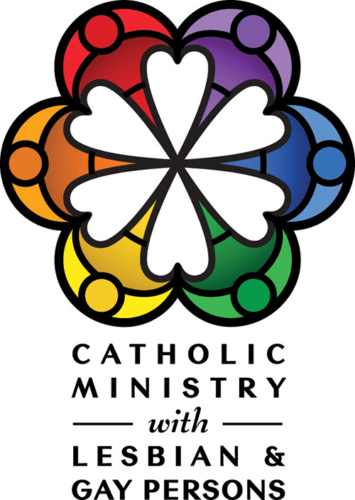I am a transgender Catholic man who doesn’t hide his past, and I felt fully loved, accepted and seen at this year’s Outreach LGBTQ Catholic Ministry Conference. First, the “seen” portion of the conference was quite literal. I have not been to any public events since I started transitioning, which mostly began in 2020 and continued through the pandemic years.
My “being seen” was emphasized by multiple speakers, most notably by College of the Holy Cross associate chaplain Megan Fox-Kelly, who spoke of seeing the eyes of God through her son’s eyes.
But, to be honest, the feeling of being loved was a surprise.
When I came out as transgender to the traditional and conservative Catholic circles in which I was raised, everyone emphasized that I was in their prayers. Initially, this gave me the impression that they had my best interests at heart and cared about my personal discernment. But in time, I felt they were saying, “I am unwilling to say I love or support you, but I hope that God is nicer than me.”
Over these last several years, it hasn’t been easy for me to actually feel that Catholics love or care about me.
Over these last several years, it hasn’t been easy for me to actually feel that Catholics love or care about me. At worst, I have had material support removed. More typically, there is a performative feeling to their words—and then the relationship turns cold. Catholics who once told me about their “secular friends” suddenly don’t want to be my friend. They don’t want to believe we love the same church, the same hymns, the same liturgy. They don’t want to believe that we share the same loving, affirming pope, who sent a letter of support ahead of the conference.
We all need community. In the webcomic series “oh no,” the artist Alex Norris features a three-panel story with a large group saying “You do not fit in here” to a smaller group. “Okay, we will make our own place,” says the smaller group. In the last panel, the big group then asks, “Why are you excluding us?” Too often, this mirrors the experience of people in marginalized communities. Many cisgender and heterosexual people assume their sexual orientation and gender identity to be the default, leading to the false assumption that there is something “inferior” about LGBTQ people.
Participating in the Outreach conference felt like a breath of fresh air after being underwater. To feel just like another, regular Catholic, and not specially labeled as “other,” was a revelation. It made me feel closer than I ever have to the church, even after my years-long relationship with the church prior to my transition.
Participating in the Outreach conference felt like a breath of fresh air after being underwater.
It was an environment where no one was afraid of the colors of the rainbow, where sharing your identity with another person was a reason for great joy. Yes, we are happy that you are here, the conference seemed to say to me. We are glad that someone like you, in all your unique glory, is here with us today.
Many speakers began their talks with that message, including Fordham University president Tania Tetlow. Outreach was the type of conference that understood the power of standing in the light. Panels featuring transgender Catholics also made me feel like I have a place in the church.
As a transgender man who isn’t trying to hide anything, I felt respected, supported and encouraged to share myself without the fear of rejection. Many people earnestly asked to hear my story. They resonated with the quintessential transgender experience of facing great disapproval from those who matter most to you, but still knowing the right decision for yourself before God.
As a transgender man who isn’t trying to hide anything, I felt respected, supported and encouraged to share myself without the fear of rejection.
I was moved to see so many straight and cisgender allies holding mental space for the experiences of others in the community. It seemed to me this was what Jesus asked for in the Gospel, when he commanded his disciples to go out and meet people where they were.
A clear effort effort was made by the organizers to represent diverse voices at the conference. The number of women given leadership roles underscored for me how rarely women were given opportunities to lead in some conservative Catholic circles. At the conference, women led much of the morning prayer services.
I’ll conclude by mentioning a powerful panel I attended on LGBTQ clergy and religious life. I would be hard to overstate the impact of hearing panelists’ experience ministering to LGBTQ communities. Through much personal sacrifice, these three individuals—the Rev. Gregory Greiten, Sister Jeannine Gramick and the Rev. Bryan Massingale—have helped many LGBTQ people by standing in the light and visibly doing the work.




